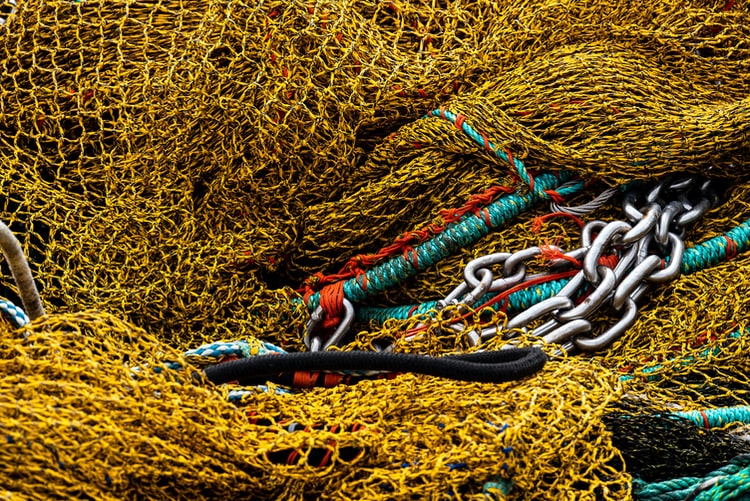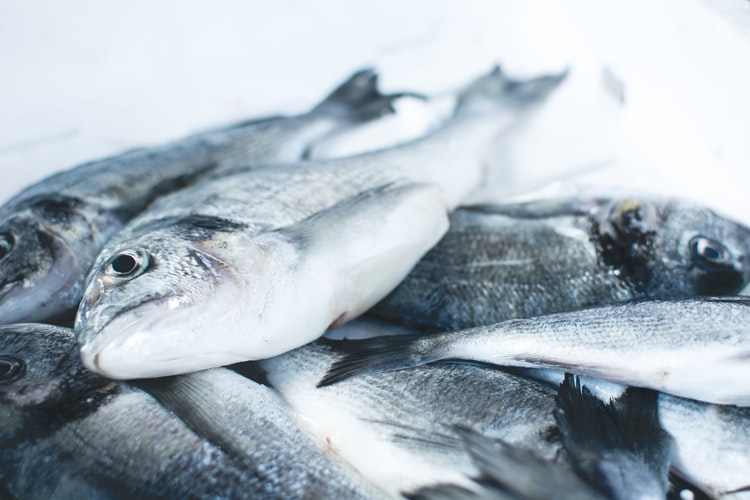SOME OF THE FACTS MAY BE FISHY BUT SEASPIRACY IS ONE HELL OF A MARINE PROVOCATION
12TH APRIL 2021

I finally got round to watching Seaspiracy on Netflix on Saturday night, having just eaten fishcakes for dinner. Not one of my smartest moves I agree, but I've always prided myself on having a strong stomach.
Hell, I was wrong.
I have to say, this documentary, which was directed by British filmmaker Ali Tabrizi was a tough watch. How much excess mercury and microplastics had I unwittingly consumed over the years? Was the pink salmon I was purchasing from the supermarket pink because a company somewhere had selected its pink hue from a colour chart? And what about the prawns I loved eating? Hearing first-hand testimonials from workers aboard these monster fishing vessels about the gross conditions they were subjected too (boiling water thrown on them) was deeply troubling. Was I contributing to this 'blood shrimp' industry? I went to bed that evening with a million thoughts swirling in my head.
Then I took a breath...
I think it's easy to watch narrative-driven documentaries like these and feel utterly overwhelmed. I've seen Cowspiracy and other shows like this, and the feeling can be all-consuming. Is there nothing we can eat without implication? Sometimes I worry it can lead to paralysis and then nothing gets done. The challenge can seem insurmountable - hearing that if we don’t change our ways, Earth’s oceans will be void of marine life by 2048 (in my lifetime), almost seemed like a fait accompli. Something to add to our list of ecological anxieties...
There's no doubt the claims made by Tabrizi were bold, but they weren't necessarily delivered with absolute scientific rigour. Many of the comparisons were stark; but perhaps what bothered me the most, were the claims about ocean conservation organisations and charities being incentivised to 'bluewash' their labelling due to pressures (and money) from big corporates. The Marine Stewardship Council (MSC - you'll find this on cans of tuna) and Plastic Pollution Coalition were two such organisations caught up in the Netflix net.
These claims were so brazen that they were perhaps hard to believe. But here's the thing, I genuinely woke up thinking I couldn't bring myself to eat fish ever again. Which for anyone who knows me, was an extreme reaction. And I don't believe I was alone in feeling that way. The documentary delivered a number of sucker punches to the characters in this story - the NGOs, the marine conservationists, sustainable fish farms, governments around the world, the "Mafia-like" gangs controlling fisheries in Asia and so many more.
But what are we supposed to think? Here's what's been bothering me...
I'm probably not going to stop eating fish as a result of this documentary. I think there are choices we can make about what we buy and how often we eat it. But if what the documentary claims about MSC labelling being worth nothing is accurate, I do question how consumers are supposed to make choices if the right processes and checks aren't in place behind the scenes.
Secondly, asking people to abstain from eating fish fails to take into account that for many poorer, less developed countries, fishing is absolutely essential, both as a source of high-protein food but also as an income. There are many marginalised communities around the world for whom not eating fish could genuinely be a matter of life and death, and so sweeping assessments such as these are not helpful rhetoric.
There were many more examples like these. Things I agreed with in the moment but then as I dissected the information, read around the statistics and immersed myself in a number of wider points of view, I realised that the answer wasn't so easy. The 'solve' wasn't so stark.That's not to say things can't be done. Hearing claims that ginormous fishing nets make up nearly half of the plastic in the ocean, or that dolphins were being caught and killed for no reason was tough to swallow. And more needs to be done. I'm just not sure asking people to stop eating fish is the answer.
As the saying goes, there is no ethical consumption under capitalism.
